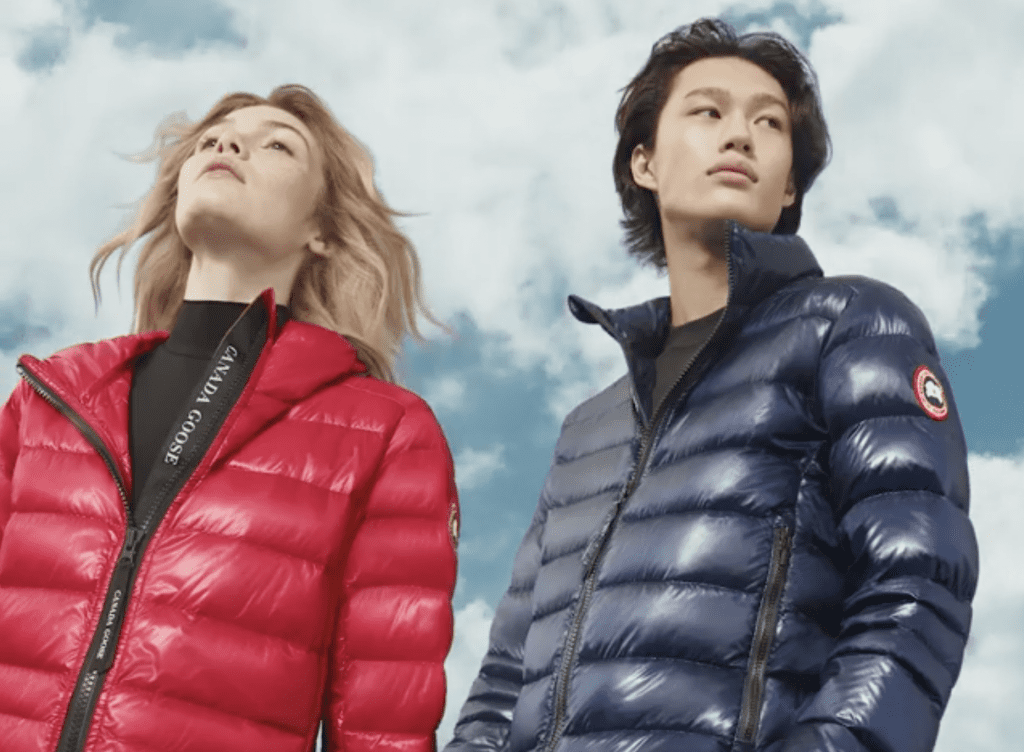A federal court has handed down a bit of a mixed ruling in a lawsuit accusing Canada Goose of misleading consumers about the nature of the trapping methods used to source the fur for its buzzy jackets by claiming that it is dedicated to “the ethical, responsible, and sustainable sourcing and use of real fur.” According to the proposed class action complaint that he filed in November 2020, plaintiff George Lee claimed that when he purchased a fur-trimmed parka from Canada Goose in 2017, he relied on Canada Goose’s representations that the fur was sourced using ethical and humane trapping methods, only to learn that “Canada Goose’s suppliers use cruel methods that cause strangulation and broken bones to coyotes and other animals who are inadvertently trapped and discarded.”
Lee alleged in his complaint that consumers “are willing to pay more for products labeled and marketed … [as being] ethically and sustainably sourced” than they are for “competing products that do not provide such assurances.” Canada Goose knows this, he argued, which is why it “cultivates an image of products [that are] a humane alternative for consumers who wish to avoid fur products that are sourced using inhumane, unsustainable, and unethical trapping practices.” In this vein, Canada Goose “makes specific representations about the ‘ethical’ sourcing of its fur,’” including on hangtag attached to its products, which tout the company’s “commitment to support the ethical, responsible, and sustainable sourcing and use of real fur” and its observance of various sourcing standards in the U.S. and Canada.
The problem, according to Lee, is that Canada Goose’s statements are misleading, as they suggest that the fur-sourcing practices used by Canada Goose trappers “prevent the infliction of extreme pain or distress on animals trapped for its fur products” when they do not. “While Canada Goose’s public representations lead reasonable consumers to believe that the company exclusively uses fur from humanely treated and slaughtered animals,” Lee argues that the company “allows for the purchase of fur from inhumane sources, [and] allows for sourcing from trappers that operate in jurisdictions that have no regulations regarding the methods of slaughtering trapped animals or the types of traps that may be used.”
And addressing Canada Goose’s assertions that all of its fur is sourced in line with the Agreement of International Humane Trapping Standards in Canada and the Best Managed Practices in the U.S., Lee specifically claims that “even if Canada Goose did ensure compliance,” its ethical and sustainable sourcing statements are, nonetheless, misleading because “these standards themselves authorize inhumane trapping practices that reasonable consumers would perceive as neglectful and unduly harmful.” As such, Lee contends that “Canada Goose capitalizes on consumers’ knowledge gap regarding fur industry practices by misrepresenting the treatment of the coyotes in its supply chain, including statements made on its product labels,” and in doing so, is running afoul of the DC Consumer Protection Procedures Act – which prohibits false advertising – and various state consumer protection statutes, while also breaching its express warranty and has been unjustly enriched as a result.
Motion to Dismiss
Canada Goose responded to Lee’s complaint with a premotion letter in February 2021, and argued that the plaintiff’s claims should be tossed out on the basis that the allegedly misleading statements about the “sustainability” of its business, for instance, are not actionable because they are too general to be proven or disproven. More than that, Canada Goose argued that Lee’s “subjective views” regarding fur-trapping standards “do not render [its] statements misleading or deceptive,” and that he has failed to show injury anywhere outside of Washington, D.C., and therefore, lacks standing to bring claims under other states’ consumer-protection statutes.
In a decision dated June 29, the court sided with Canada Goose, in part, and Lee, in part. Primarily, Judge Victor Marrero of the U.S. District Court for the Southern District of New York refused to dismiss Lee’s DC Consumer Protection Procedures Act claim with respect to Canada Goose’s statement that it is committed to “ethical, responsible, and sustainable sourcing,” holding that Lee has “plausibly alleged that this statement has the tendency to mislead a reasonable consumer.” Specifically, the court held that Canada Goose’s statement may be misleading because it “obtains fur from trappers who use allegedly inhumane leghold traps and snares,” which Lee alleges “is widely considered inhumane by industry professionals.”
Also, the court was “further persuaded that the statement – and related omissions regarding Canada Goose’s true fur-sourcing methods – is material.” According to the court, “Reasonable consumers consider ‘animal welfare’ to be an important factor in whether a product is ‘ethically produced,’ and consumer-perception research indicates that terms, such as ‘sustainably produced,’ are perceived as signaling compliance with ‘higher animal welfare standards.’” While Lee’s “allegations are thin,” Judge Marrero determined that “the allegations support the reasonable inference that Canada Goose’s purported commitment to ‘ethical’ fur sourcing is misleading.”
As for Canada Goose’s claims that it is in compliance with the specified sourcing standards and that it “sources from licensed fur trappers regulated by state, provincial, and federal standards,” the court held that these statements “are accurate and therefore, unlikely to mislead [consumers].” These standards “may be inadequate” in ensuring that animals are not treated inhumanely, but that “does not render [Canada Goose’s] representations as to compliance [with those standards] false or misleading,” according to the court.
Finally, Judge Marrero refused to toss out Lee’s various state consumer protection law claims, reserving the decision on his standing until the class-certification stage.
In addition to certifying his proposed class action, Lee is seeking “declaratory relief in the form of an order declaring [Canada Goose’s] conduct to be unlawful, as well as injunctive relief putting an end to [its] misleading and unfair business practices, including a change to the current products’ representations, packaging, labels and marketing of the fur products so that they are no longer represented as ‘ethical’ and ‘sustainable’ and subject to strict animal welfare regulations.” He is also seeking monetary damages in connection with his claims.
Voluntary ESG Claims
Interestingly enough, Canada Goose announced on June 24, just days before Judge Marrero handed down his decision, that it will stop buying fur by the end of this year, and will cease manufacturing fur products entirely by the end of 2022. The case, nonetheless, provides some striking lessons for brands.
Reflecting on the latest development in the case, which comes as regulators and consumer watchdogs across the globe are focusing increasing attention on sustainability and ESG claims by companies, including voluntary claims, Frankfurt Kurnit Klein & Selz PC managing partner Jeff Greenbaum says that there are two key takeaways. “First, if you advertise that you are complying with voluntary standards, then even though your compliance with those standards is voluntary, you can be held liable for false advertising if you do not actually comply with them.” With that in mind, he cautions companies to “think carefully before making these types of promises,” and ensure that they have processes “in place to ensure continuing compliance.”
Second, Greenbaum states that companies should not assume that “general statements” that that make about a company’s business practices, “such as that [they are] acting ‘ethically,’ ‘responsibly,’ or ‘sustainably’ – are puffery.” When these statements are “viewed in context, they may be understood to communicate specific claims about how the company operates,” and thus, be actionable in the eyes of the law.
The case is George Lee, et. al., v. Canada Goose US, Inc., 1:20-cv-09809 (SDNY).














